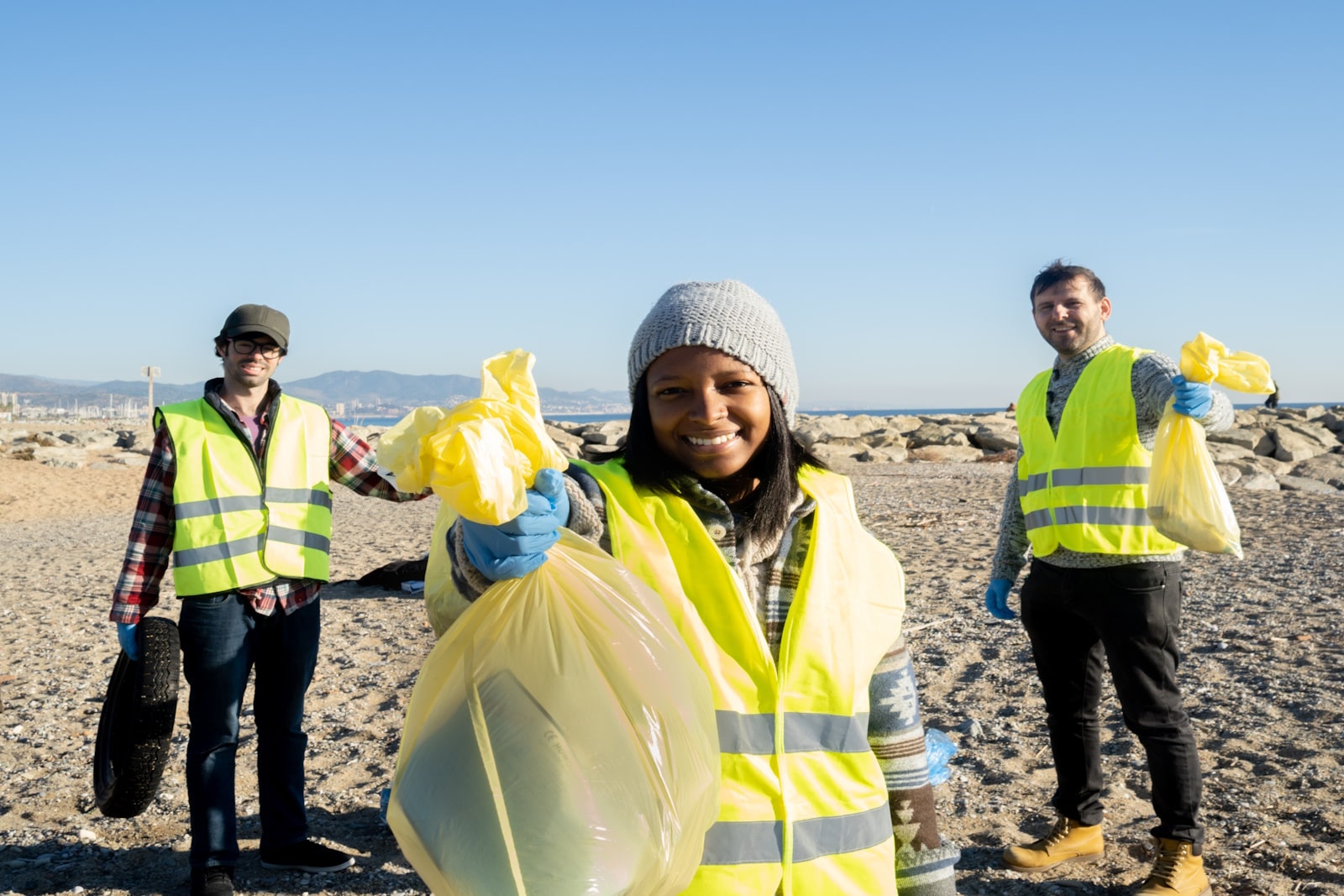Waste Management Companies and Ocean Cleanups
Plastic pollution in the world’s oceans has reached alarming levels, with billions of pounds of waste disrupting marine ecosystems and threatening biodiversity. Fortunately, collaborative efforts between waste management companies, NGOs, and governments are making significant strides toward cleaner oceans. These partnerships are pioneering innovative technologies and methods, driving positive environmental and economic impacts, and fostering a united approach to tackle one of the planet’s most pressing challenges.
Innovative Technologies and Methods
Effective ocean cleanup efforts are heavily reliant on cutting-edge technology. From marine robots to advanced waste filtration systems, these innovations are transforming how we address ocean plastic pollution.
Marine Robots and Drones for Cleanup Operations
Marine robots and autonomous drones are game-changers in cleanup operations. These advanced devices can navigate the ocean surface and underwater environments, detecting and collecting plastic debris. By mapping pollution hotspots and recovering waste efficiently, they reduce the need for costly and labour-intensive human operations. These technologies also allow researchers to gather critical data on pollution patterns, enabling better strategies for future cleanup efforts.
The Role of Booms and Barriers in Coastal Cleanup Projects
Floating booms and barriers play a crucial role in intercepting plastic waste before it reaches open waters. Strategically placed at river mouths and coastal areas, they capture large amounts of debris, significantly reducing the amount of plastic entering the ocean. These systems are particularly effective in mitigating waste at source points, helping to protect marine habitats and coastal ecosystems.
Advanced Waste Filtration Systems at River Mouths
To combat microplastic pollution, advanced waste filtration systems have been installed at river mouths. These filtration systems capture small plastic particles that often go undetected by traditional cleanup methods. By preventing microplastics from flowing into the ocean, these systems contribute to healthier marine ecosystems. Innovations in filtration technology are continually improving their efficiency and scalability, making them a valuable asset in the fight against ocean pollution.
Environmental and Economic Impact
Beyond environmental restoration, ocean cleanup partnerships have a significant economic dimension.
Turning Ocean Plastic into High-Value Products
One of the most promising aspects of cleanup efforts is the potential to transform collected ocean plastic into high-value products. Companies are increasingly exploring ways to upcycle plastic waste into consumer goods, construction materials, and even components for the automotive industry. This approach not only reduces the environmental burden but also supports circular economy principles. By creating marketable products from waste, businesses can drive sustainability while generating revenue.
Economic Viability of Large-Scale Ocean Cleanup Partnerships
The economic costs of ocean plastic pollution are staggering, affecting tourism, fisheries, and coastal economies. Partnerships between waste management companies, NGOs, and governments help mitigate these costs by developing scalable cleanup solutions. By turning waste into valuable resources, these initiatives create economic opportunities while preserving the environment. The integration of waste management companies into these efforts ensures that the collected plastic is processed responsibly and repurposed efficiently.
Collaborative Efforts
The success of ocean cleanup efforts relies on strong partnerships and collaborative actions.
Corporate and NGO Collaborations for Cleaner Oceans
Waste management companies are joining forces with NGOs and government entities to scale up cleanup operations and innovate new solutions. These collaborations often involve joint research initiatives, technological development, and public awareness campaigns. For instance, community-driven cleanups supported by corporate funding can lead to significant local impact while fostering public engagement.
Government support is essential for the success of these initiatives, particularly in the context of law and policy. South African environmental regulations, such as the National Environmental Management: Waste Act (NEMWA), provide a framework for responsible waste management and pollution prevention. By aligning their efforts with national policies, ocean cleanup partnerships can operate more effectively and contribute to the country’s environmental goals.
Moreover, international cooperation plays a vital role. Collaborative research projects and knowledge sharing between nations can accelerate the development of innovative solutions and ensure that best practices are adopted globally.
At A-Thermal, we are committed to supporting initiatives that contribute to a cleaner, healthier environment. Our expertise in waste management and sustainable solutions positions us as a valuable partner in tackling ocean plastic pollution. If you’re looking to collaborate or learn more about our efforts, contact us today and join the movement towards a cleaner future.







